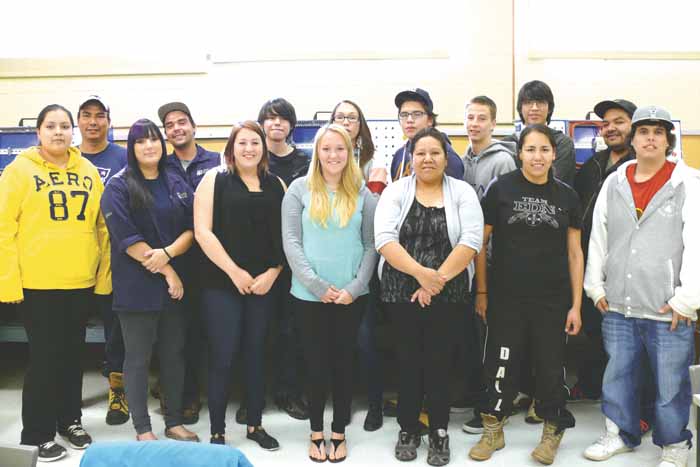Eleven years after the Apatisiiwin Agreement between Hydro-Québec and the James Bay Cree was reached, the final cohorts of the Technical Employment with Hydro-Québec (TEHQ) program have begun their two-year training programs.
This last group of prospective employees have exactly two years to complete their studies in automated systems electro-mechanics at Rouyn-Noranda’s Centre Polymétier, and in industrial construction and maintenance mechanics at the Centre de formation professionnel in Amos. According to the agreement, 150 qualified Cree employees were to be hired by 2017.
Niskamoon, working under the umbrella of the Cree Regional Authority and the Grand Council of the Crees, has worked with the Cree School Board since the Apatisiiwin Agreement was implemented in 2003. The two concerted their efforts to ensure Cree beneficiaries receive the necessary training for the permanent jobs that Hydro-Québec is supposed to provide.
“This is the beginning of the end,” said Niskamoon Comunications Officer Cynthia Taylor. “Here at Niskamoon we implemented a structure to help follow through with the agreement and facilitate access to the program and the funding. There was an extension of the agreement to allow for another cohort, but because there are only two years left on the agreement only the two-year programs were available this year.”
Taylor stressed the importance of a technical orientation for these programs put in place in 2009, saying that the orientation was instrumental in preparing students for the challenges they face in the challenging technical programs that are delivered solely in French. She called it a great example of how to help Cree students achieve academic success.
“The program originally started without an orientation and the students were coming into the program unprepared and a lot of time was spent getting them up to speed,” she noted.
The compulsory orientation saw students come together for two weeks in Cantley, Quebec. There, students had the chance to get to know each other and prepare for the years ahead. They developed a sense of community, teamwork, and a clear understanding of what would be expected of them – and the attitudes and habits they needed to successfully complete their program.
Presentations from industry professionals offered a picture of life in the workplace following graduation. Workshops and animation activities helped students ready themselves for the culture shock once they leave their communities and are immersed in the rigorous, French-language technical programs. More enjoyable activities included canoe trips, bowling and billiards.
Diane Thibault, Niskamoon’s Training and Employment Director, said the orientation better prepared students to identify problems they are likely encounter during the school year.
“It gives the students the tools for success,” she said. “The candidates were not prepared to face the reality of such a rigorous program, with such variety, such complexity. The shock was too big; there was a huge gap between their way of life and what we were expecting from them in the program both in the training and in the private life. We were uprooting them, bringing them in to a big city.”
Workshop animator Michelle Coulombe taught the TEHQ students both before and after the orientation session was given. “When the groups arrive after an orientation session they are armed and equipped,” she said. “There is a big difference.”
Students and teachers alike attest to the positive impact Niskamoon’s TEHQ orientation has had on their social and academic lives. Romy Kistabish, a first-year Mechanical Industrial student, said he was hesitant to attend the orientation at first but in the end he learned a lot about himself and how to maintain a positive approach.
“It changed my perception on things, it helped me a lot and it helped me realize certain qualities I didn’t think I had,” Kistabish acknowledged.
Jennyfer Boutin, in her first year of Automated Systems Electro-Mechanics, said that following the two weeks of training and preparation she now has the confidence to succeed in her program to become an apparatus electrician. She will join her father and her sister, who is also in the program, in jobs at Hydro-Québec.
“I’m anxious to start working for them and to start my life, buy a house and start my future plan,” said Boutin.



